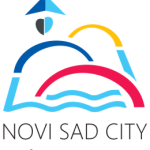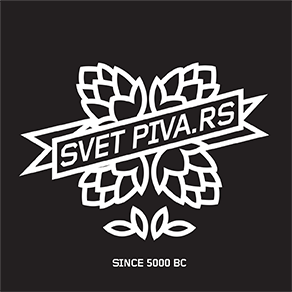The Discussion On Regulating Street Performing In Novi Sad Continued
Representatives from Belgrade, Zagreb, Skopje, Paris and Novi Sad on the 15th Street Musicians Festival talked about regulating street performing of cultural, art and entertainment programs
The second panel discussion about the initiative for regulating street performing of cultural, art and entertainment programs, so called busking, on public surface areas in Novi Sad, was held as part of the program of the 15th Street Musicians Festival on Friday, 4th September 2015, in SKC Fabrika.
The discussion was organized by the Art Association Inbox, the City Council for Culture of the City of Novi Sad and PDP Conference for Creative Media, and the participants were: Vera Boskovska from Yu Congress Center Alexander the Great from Skopje, Davor Peršić street entertainer and musician from Zagreb, Virdžinija Đeković, director of the Belgrade festival Vreva, Jean Ménigault, French clown and pantomime and Aleksandar Carić, foreign program manager of the Street Musicians Festival, as the moderator.
The second panel discussion was an excellent opportunity to compare Novi Sad’s initiative with the experiences from other cities in Europe and the region in the field of busking regulations. The presence of guests from various countries gave insight both to the problems and the positive experiences in other environments.
The foreign program manager of the Street Musicians Festival, Aleksandar Carić, himself also a street performer who has experience performing in other cities and countries, straight from the beginning highlighted that due to the existence of an ever-increasing number of musicians and artists in Novi Sad it is in everyone’s interest that street performing in this city be resolved in the manner best for all. According to his experience, it is only possible with precise and detailed regulations, because street performing is a complex phenomenon, and often, let say, centimeters are important to the distance of the performer and the shop window. Carić concluded that the Belgrade regulation has a good text, which should serve Novi Sad as a model, provided that implementation of it should be considered in advance.
Virdžinija Đeković, director of the Belgrade festival Vreva, highlighted the importance saying that if the result of this issues’ regulation is for the street to belong to the artists, then culture will become available to everyone. The City of Belgrade in her own opinion is very open to this idea which is noted by the regulation and its implementation, but also with its improvement and openness to new initiatives. Virdžinija said that the dialogue process between citizens who began the initiative for regulating street performing in Belgrade and the City of Belgrade lasted around a year. She also emphasized that on its own the regulation is not enough, and that the next important step is to communicate with artists and promote the possibility of street performing, as a good example she noted the pamphlet of New York City in which it is explained to the artists, in a colorful fashion, what and how to do in order to ease their acquisition of the license and what is most important for them – a performance.
Street entertainer and musician from Zagreb, Davor Peršić, said that he is not too satisfied about the regulation of street performing in his city, and as the most graphic example he noted was that the office which issues permits is located a couple of kilometers from the city center. However, in Zagreb, unlike Novi Sad, albeit street performing is being regulated, and 3 month permits are issued costing 12 Euros each, Davor said that unfortunately that is all, and his impression is that no one in Zagreb is addressing this question in the right manner.
All of the discussion participants agreed that it is very important to find a way for the audience to be the one who will decide who is to perform, as well as taking into account that each city is specific, and that it is not good, and probably not possible to make a universal recipe for resolving the question of street performing.
How cities differ from each other confirmed the accounts of street performing of art and entertainment programs in their cities both Vera Boskovska from Yu Congress Center Alexander the Great from Skopje, and Jean Ménigault, French clown and pantomime.
Vera Boskovska with her experience from Skopje, it can be said, surprised the attending parties, because the capital city of Macedonia has a completely different solution, but also different problems than the rest. Namely, at the moment in Skopje a five-year project is being implemented for the regulation of street performing, the idea of which, as Vera said, could be described as a festival lasting 365 days of the year. This project predicts that the Macedonian street performers would receive fees from a special budget of the amount of 75,000 Euros, unlike other cities where the situation is reverse, and where artists pay taxes for permits allowing them to play in the street. However, as Vera said, Skopje has problems as well, local performers are not interested enough to perform in the street, others perform, but exclusively with the idea of profit in mind, sacrificing the quality of the performances, and the third being unsatisfactory fee amounts… Apart from that, according to her, the citizens in this city do not have the habit of leaving money in the performers’ hats, and also permits for foreign performers are not easily attained, so foreigners do not want to perform in the streets of Skopje.
To which all who are involved in street art in the mentioned cities strive for, in the end as an experience from Paris described Jean Ménigault. Often described as the world’s capital of culture and art, Paris has a centuries-long experience of streets belonging to the artists, so it is not uncommon that many contemporary great and acclaimed artists had their first performances in let’s say the Parisian metro. In this city there are places, in which performing is always allowed, it is enough to “bow and begin”, and even the police is, as this French clown and pantomime said, used to this relation towards artists, so often enough they do not create problems even if someone does not have a performance permit. However, Jean said that if you see an artist in Paris with a hat, it is likely that he is a beginner, and precisely a performance in the Parisian metro is considered an exam of sorts for young entertainers. The second possibility is the hat is a personal choice of the artist to be intentionally marginalized. Because, France is known for its vast and expensive productions, it is obvious whether the artist is paid, and also, France is not lacking in opportunities for the engagement of artists, because there are a lot of festivals and general opportunities for artistic expression. Schools for pantomimes and jugglers are common place, and clowns and pantomimes and their audience consider these art forms as a profession.
From Aleksandar Carić we heard interesting things from Italy and Rome, which, when it comes to art, of course, is not lagging behind Paris. Namely, before in Rome it was prohibited to use amplifiers in the street, more precisely it was highlighted in the regulation that music in the street can be strictly performed acoustically. Up until the drummers emerged, which “made” the city authorities change the “game rules”. In Bologna there is a performer who sitting on a motorcycle performs music, and for years the City cannot resolve his status, so a dialogue about possible solutions is currently led directly between the mayor and the artist. Carić had with these examples concluded the discussion, only to emphasize the importance of learning by example from other cities and so promptly predict all the specifics regarding the regulation of street performing.
The discussion on street performing of cultural, art and entertainment programs in Novi Sad began in June this year, when interested citizens, street performers, Vanja Vučenović, member of the City Council for Culture, as well as the representatives from the City of Belgrade, who have already regulated this question, met and discussed this topic. The project which as its goal has to offer a solution for regulating street performing in Novi Sad, the Street Musicians Festival continued discussing on its festival website.
The regulation project of this matter, in the end, should be implemented by the City of Novi Sad’s City Council for Culture and the Administration for Municipal Affairs, with support from the Art Association Inbox, which will in the resolution of these matters offer its experience, logistics and channels of communication.































